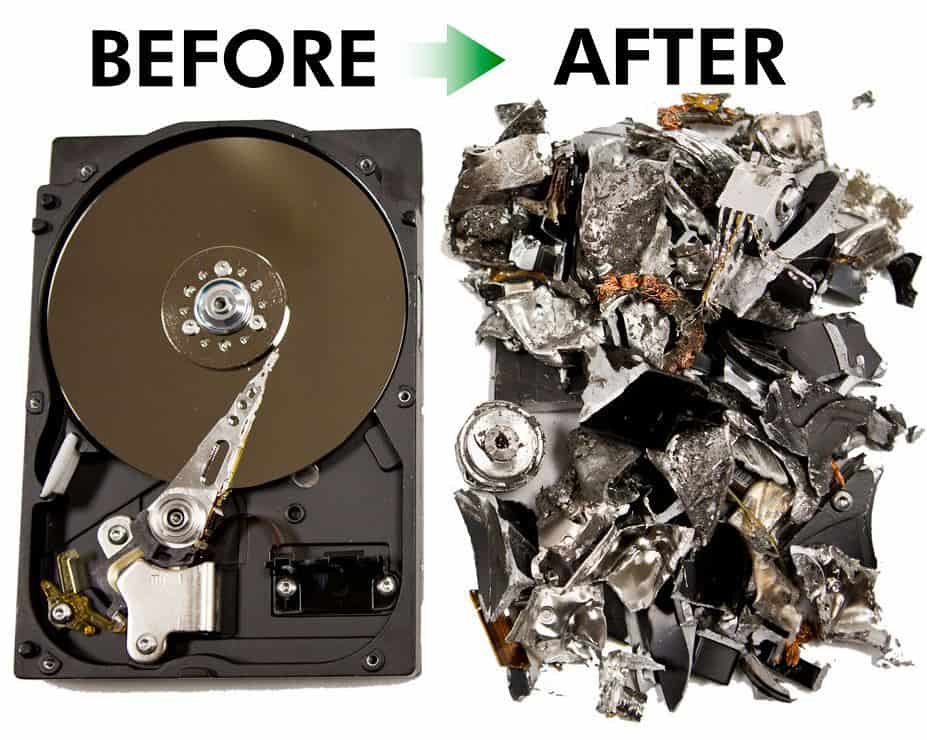How Robust Data Destruction Boosts Your Overall Cyber Security Procedures
How Robust Data Destruction Boosts Your Overall Cyber Security Procedures
Blog Article
The Importance of Effective Data Destruction Practices in Shielding Sensitive Details and Ensuring Computer System Safety And Security
In an era where information violations are increasingly usual, the significance of efficient data destruction techniques can not be overemphasized. Organizations face considerable dangers when sensitive details is improperly disposed of, possibly leading to unapproved gain access to and severe monetary effects. Implementing durable data devastation approaches not just mitigates these dangers however also straightens with lawful compliance needs, making certain that organizations maintain their reputation and foster customer count on. The question remains: what details methods can be used to improve these techniques, and exactly how can companies successfully integrate them into their overall cybersecurity framework?
Understanding Data Damage
Recognizing information devastation is vital in today's digital landscape, where delicate info can easily be jeopardized. Efficient data damage entails not just removing files however making sure that data is irretrievable with thorough techniques. This process is essential for companies that handle personal client information, copyright, or interior papers, as any kind of breach can lead to severe monetary and reputational effects.
Information devastation includes various strategies, consisting of shredding physical media, degaussing magnetic storage devices, and using software-based services that overwrite data numerous times. Each method serves a specific purpose and should straighten with the level of sensitivity of the details being thrown away. Physical destruction is usually chosen for difficult drives consisting of extremely personal data, while software techniques might be sufficient for much less sensitive info.
In addition, adhering to market criteria and regulations, such as the General Data Security Guideline (GDPR) or the Medical Insurance Transportability and Accountability Act (HIPAA), is imperative for compliance and to reduce lawful risks. Organizations has to develop a durable information destruction plan, train employees on finest techniques, and consistently audit their procedures to ensure that all delicate information is dealt with securely and effectively.
Threats of Inadequate Practices
Insufficient data damage methods subject organizations to considerable dangers that can have far-reaching effects. When sensitive info is not effectively thrown away, it continues to be susceptible to unapproved gain access to, which can result in data breaches and identity burglary. Such incidents not only jeopardize the protection of people however likewise taint the company's online reputation, leading to a loss of consumer trust and possible economic consequences.
Furthermore, governing conformity is significantly strict in many industries. Failure to abide by information damage policies can lead to substantial penalties and lawful activities versus organizations. These charges can stress monetary sources and divert attention from core organization procedures.
Additionally, the abuse of recurring information can result in copyright theft or company espionage, jeopardizing affordable advantages (data destruction). The effect of inadequate information destruction extends beyond prompt monetary losses; it can likewise lead to lasting damages to brand stability and market placement

Organizations have to acknowledge that data protection is not solely about preventing violations; it likewise incorporates the responsible management of information throughout its lifecycle. Disregarding reliable information devastation protocols can have devastating implications, highlighting the need for durable steps to alleviate these dangers.
Best Practices for Data Damage
Carrying out effective data devastation techniques is necessary for securing sensitive information and maintaining compliance with governing criteria. Organizations should adopt a multi-faceted method to make certain that data is irretrievable, thus protecting against unauthorized gain access to and possible breaches.
First, data should be categorized based on level of sensitivity, enabling organizations to apply appropriate destruction methods tailored to the degree of threat. For electronic information, using software-based data-wiping devices that follow industry standards can successfully overwrite existing data. Physical devastation techniques, such as shredding or degaussing, are critical for devices that store delicate information, ensuring total elimination.
Developing a clear data retention plan is vital, detailing for how long different kinds of info need to be kept before destruction. Routine audits of data storage space systems are additionally needed to determine obsolete or unneeded data needing elimination.
Additionally, training workers on the importance of data devastation and the certain procedures to comply with fosters a society of safety within the company. Maintaining paperwork of data devastation refines offers responsibility and sustains conformity with interior plans and external guidelines. By sticking to these best practices, companies can considerably reduce the threats connected with data direct exposure.
Legal and Conformity Factors To Consider

Failing to follow these guidelines can lead to severe penalties, including considerable fines and reputational damage. Organizations has to apply a durable data devastation plan that aligns with these lawful frameworks and supplies clear standards on the appropriate methods of information disposal, whether physical shredding or digital wiping.
In addition, preserving documents of information damage activities is vital for demonstrating conformity throughout audits or inspections. By focusing on legal and compliance considerations, organizations can improve their data safety and security posture and foster depend on with customers and stakeholders, inevitably adding to an extra secure data administration atmosphere.
Benefits of Effective Data Devastation
Efficient data damage techniques extend beyond mere conformity; they provide substantial advantages to organizations that prioritize them. By guaranteeing that sensitive information is irretrievably damaged, companies minimize the danger of information breaches and the possible financial repercussions linked with them. This positive approach not just safeguards against unapproved access but likewise enhances the general trustworthiness of the company in the go eyes of clients and stakeholders.
Applying durable information damage approaches, such as physical devastation of storage space devices or sophisticated information wiping techniques, contributes to the fortifying of a company's cybersecurity pose. data destruction. It lowers the likelihood of copyright theft and secures proprietary info, thus keeping an affordable side on the market

Conclusion
Finally, reliable data damage techniques are important for safeguarding sensitive info and boosting general computer system security. By implementing comprehensive approaches such as software, shredding, and degaussing overwriting, organizations can alleviate the dangers related to unauthorized gain access to and data violations. Adherence to regulative requirements, including GDPR and HIPAA, further enhances conformity and safeguards versus lawful consequences. Ultimately, a dedication to robust information destruction strategies promotes a society of obligation, therefore enhancing a company's cybersecurity posture and keeping customer trust.

Report this page